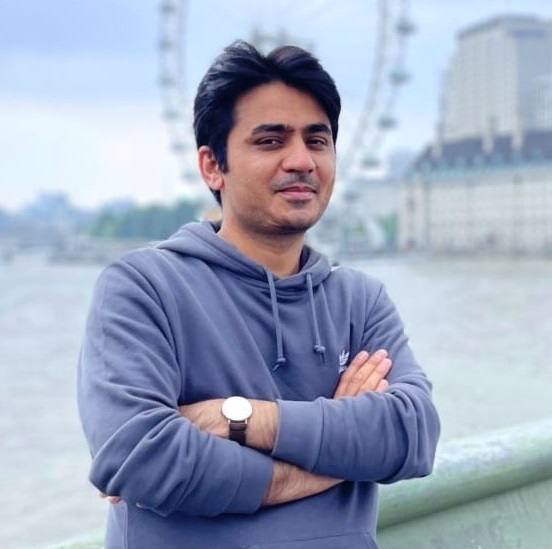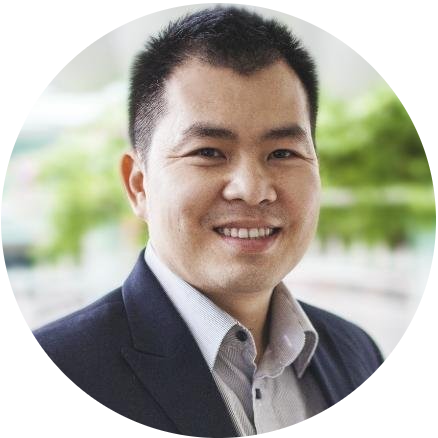About the Workshop
Welcome to the 1st workshop on federated learning for Wireless Edge AI (FedEdgeAI). FedEdgeAI will be hosted in conjunction with the IEEE ICDCS 2025 conference, which will be held in Glasgow, Scotland, United Kingdom, from July 20th to July 23rd, 2025.
We invite you to submit your original work on topics related to federated learning, focusing on real-world challenges when federated learning is deployed in practical scenarios. This includes algorithms for distributed machine learning, adaptive techniques for changing network conditions, edge AI resilience, benchmarking generative models at the edge, downsizing Large Language Models (LLMs) into Small Language Models (SLMs) for improved computation and communication efficiency, semantic communication, asynchronous federated learning training, and rethinking communication protocols for wireless federated learning.
Call for Papers
Edge AI emerged as an evolution of the edge computing paradigm, deploying AI algorithms and models directly on edge devices. Within this context, the concept of federated learning provides privacy by design in an machine learning technique, enabling collaborative learning across multiple distributed devices without sending raw data to a central server while processing data locally on devices. However, given the limited availability of resources on many devices, performing federated learning on such devices is impractical due to increased training times. Moreover, for training machine learning models that may be a Deep Neural Network (DNN), massive amounts of parameter updates need to be synchronized across distributed devices, creating potential congestion and eventually slowdowns the entire training process.
Specifically, the end devices used in federated learning are predominantly wireless and typically operate with limited bandwidth, such as 2G, 3G, or Wi-Fi. The global and local model parameters use uplink and downlink transmission, which depend on bandwidth resource block allocation, fading, and interference from others. Exchanging model parameters over such lossy networks may result in challenges such as transmission delay, which impacts the convergence time of the model, and packet losses, which affect the model's accuracy.
We invite submissions on a wide range of topics including, but not limited to:
- Novel algorithms and architectures for the intersection of distributed machine learning and the cloud-edge-device continuum.
- Adaptive techniques for real-world constraints in federated learning deployments.
- Techniques for downsizing LLMs to SLMs for edge deployment (Edge Generative AI).
- Real-world applications of generative AI at the wireless edge.
- Benchmarking frameworks for evaluating generative AI models at the wireless edge.
- Semantic communications for wireless federated learning.
- Novel application layer and transport layer protocols at the wireless edge.
- Effective mobility management and migration mechanisms in wireless federated learning.
- Neural network optimization techniques in mobile scenarios.
- Privacy and security challenges in wireless federated learning.
- Communication-efficient techniques for asynchronous wireless federated learning training.
- Real testbeds and empirical evaluations.
Important Dates
- Paper Submission Deadline:
- Notification of Acceptance: 2 April 2025
- Workshop Papers Camera-Ready: 16 April 2025 (this is a hard deadline)
- Workshop Date: 20 July 2025
*All deadlines are Anywhere on Earth (AoE) .
Submission Guidelines
Authors are invited to submit original and unpublished work, which must not be submitted concurrently for publication elsewhere, in the following format:
- Full paper (6 pages): Interesting, novel results or completed work on topics within the scope of the workshop.
- Short paper (4 pages): Exciting preliminary work or novel ideas in their early stages.
- Poster (2 pages): Working, presentable systems or brief explanations of a research project.
The page length includes figures, tables, appendices, and references. Papers exceeding this page limit or with smaller fonts will be desk-rejected without review. All paper submissions should follow the IEEE 8.5″ x 11″ two-column format using 10pt fonts and the IEEE Conference template (download from here).
For each accepted paper, at least one author is required to register and attend the workshop in-person to present their poster/paper on-site. No-show paper will be reported to the publisher and removed from the ICDCSW companion conference proceedings. All accepted and presented papers will be included in the IEEE ICDCSW companion conference proceedings and IEEE digital library.
Please refer to ICDCS's paper submission guidlines.
Submission Portal: Submit papers via EasyChair.
Note: All authors and contributors should adhere to ethics and professional standards of IEEE. Please refer to IEEE Code of Ethics and IEEE Policy of AI-Generated Text.
Organizing Committee
General Chairs

Dr. Rehmat Ullah
Senior Lecturer (Associate Professor) at Newcastle University, UK

Dr. Danh Le-Phuoc
Head of PICOM Lab and DFG Principle Investigator, Technische Universität Berlin, Germany.
Dr. Muhammad Atif Ur Rehman
Lecturer (Assistant Professor) at Manchester Metropolitan University, UK.

Dr. Ahmed M. A. Sayed
Senior Lecturer (Associate Professor) and Head of SAYED Systems Group at Queen Mary University of London, UK.
Publicity Chair

Dr. Kevin Li
Post-doc researcher, Queen Mary University of London, UK.
Program Committee Members
- Prof. Bahman Javadi, Western Sydney University, Australia.
- Dr. Di Wu, University of St Andrews, UK.
- Dr. Sidi Lu, William & Mary University, Williamsburg, Virginia, USA.
- Dr. Mahdi Boloursaz Mashhadi, University of Surrey, UK.
- Dr. Ali Raza, Honda Research Institute Europe, Germany.
- Dr. Boubakr Nour, Ericsson Research, Canada.
- Dr. Husnain Sherazi, Newcastle University, UK.
- Dr. Muhammad Salahuddin, EURECOM, France.
- Dr. Tomasz Szydlo, Newcastle University, UK.
- Dr. Dinh-Hieu Tran, University of Luxembourg, Luxembourg.
- Dr. Dev Jha, Newcastle University, UK.
- Dr. Muhammad Habib ur Rehman, University of Bedfordshire, UK.
- Dr. Saif ul Islam, University of Warwick, UK.
- Dr. Kim Phuc Tran, University of Lille, France.
Keynote Speakers

Dr. José Cano
Associate Professor in School of Computing Science at University of Glasgow, UK.
Talk Title: Accelerating LLMs at the Edge: The Power of Efficient HW/SW Co-Design

Dr. Edoardo Prezioso
Research Fellow at University of Naples Federico II, Italy.
Talk Title: Federated Learning under Operational Constraints: A Study on Statistical and Device Heterogeneity
Program
20 July 2025
Venue: Radisson Blu Hotel, Glasgow, Scotland, UK
José Cano is an Associate Professor in the School of Computing Science at the University of Glasgow, where he leads the Glasgow Intelligent Computing Laboratory (gicLAB) within the Systems Research Section (GLASS) and is also deputy Head of GLASS. His research interests are in the broad areas of Computer Architecture, Computer Systems, Compilers, Machine Learning, and Security. His current research is mainly focused on Hardware/Software co-design approaches to efficiently and securely deploy AI/ML applications on resource-constrained edge devices.
José is currently Principal Investigator at the University of Glasgow on the EU’s Horizon Europe project dAIEDGE and the UKRI APRIL AI Hub project SECDA-DSE, and Co-Investigator on the UKRI project IDEAL . He was Principal Investigator on the UK’s PETRAS project MAISE , and Co-Investigator on the UKRI "Digital Security by Design" projects AppControl and Morello-HAT . He has obtained over £550K as a project PI, over £1.3M as a project Co-I, and over £81K from eight personal grants.
José received his Ph.D. in Computer Science from Universitat Politècnica de València (Spain) in January 2012. After that, he was a Postdoctoral Researcher in the Department of Computer Architecture at Universitat Politècnica de Catalunya (Spain) until December 2013. Then he joined the Institute for Computing Systems Architecture in the School of Informatics at The University of Edinburgh (UK) as a Research Associate between January 2014 and August 2018. He is a senior member of the IEEE and ACM research societies and a member of the HiPEAC, dAIEDGE, and PETRAS networks of excellence.
Large Language Models (LLMs) are increasingly a key component of Artificial Intelligence (AI) applications across various domains, including computer vision, natural language processing, and scientific computing. Executing LLMs on edge devices can enable secure computation, lower energy consumption, and reduce costs. However, to be practical, their performance must improve significantly due to the demanding memory and compute requirements of emerging LLMs, which conflict with the limitations of resource-constrained edge devices.
In this talk, I will introduce the Glasgow Intelligent Computing Laboratory (gicLAB) and give an overview of our current and future research, with an emphasis on approaches to efficiently and securely deploy and run LLMs on resource-constrained edge devices.
Edoardo Prezioso is currently a Senior Research Fellow within the Department of Mathematics and Applications "R. Caccioppoli" at the University of Naples Federico II, Italy. His research activities are primarily conducted as a core member of the M.O.D.A.L. (Mathematical mOdelling and Data AnaLysis) research group and laboratory, a dynamic, interdisciplinary unit focused on cutting-edge research in Artificial Intelligence.
His scientific productivity is demonstrated by a portfolio of over 30 publications, reflecting a significant impact in his field. He has been a speaker at numerous international conferences and is a co-inventor of a patent for multivariate time-series prediction.
Contact
FedEdgeAI Chairs
Email: fededgeai@gmail.com